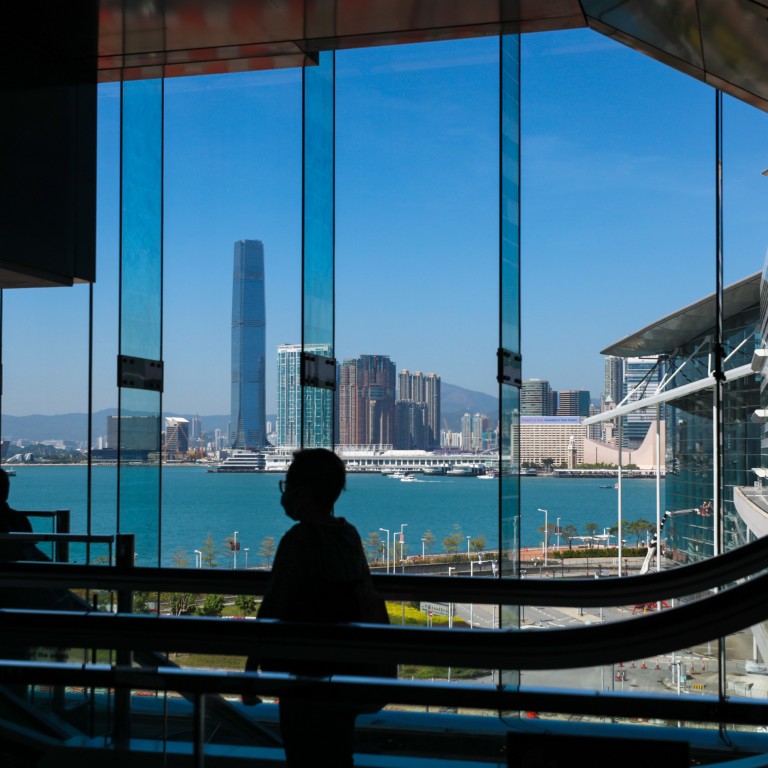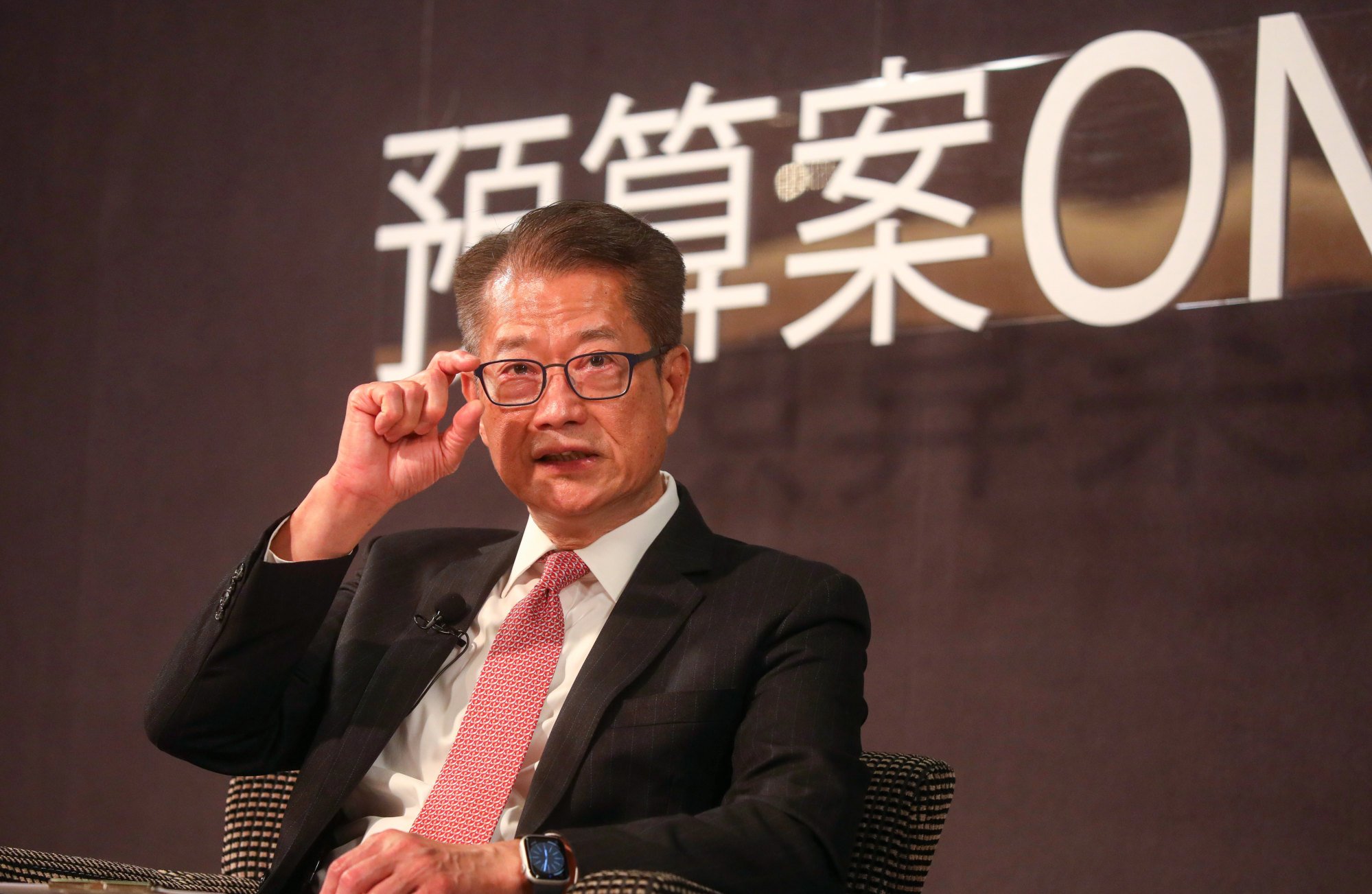
Hong Kong’s Paul Chan says Beijing’s 5% annual growth target ‘not easy, but achievable’ and will help to support city’s economy
- Finance chief also says country’s push to open ‘its door wider’ to world will allow Hong Kong to use exhibitions on mainland to promote its own events
- Chan touches on national emphasis to cultivate ‘new quality productive forces’, says policy direction will help create favourable environment for city’s innovation sector
Hong Kong’s finance chief has described Beijing’s annual growth target of about 5 per cent as “not easy, but an achievable goal” that will help to support the development of the city’s own economy.
Financial Secretary Paul Chan Mo-po also wrote in his weekly blog on Sunday that the country’s goal of “opening its door wider” to the world would benefit Hong Kong, as the city could capitalise on international exhibitions in mainland China and promote its own tourism and conference events as package options.
“[The opening up] includes successfully hosting major exhibitions such as the China International Import Expo, China Import and Export Fair, Trade in Services Fair … and accelerating the construction of the international logistics system,” he added.
“All of these will also provide huge opportunities for Hong Kong. This will not only give local enterprises more opportunities to participate in large-scale exhibitions on the mainland, but also allow Hong Kong to launch more connected activities or international conferences locally at that time.”
Chan added that it would help to attract more business travellers to Hong Kong, resulting in a boost for the local retail, catering and transport sectors.
Sharing his thoughts on the “two sessions” meetings, the top political and legislative gatherings held every year in Beijing, Chan said a highlight was Premier Li Qiang’s pledge to set an ambitious growth rate of around 5 per cent this year.

Chan said the target for gross domestic product (GDP) growth would not be an easy one given the complex geopolitical situation, but it could be achieved “with the solid foundation of the mainland economy and policies, coupled with strong leadership and unity from top to bottom”.
“At the same time, this will provide the strongest support for the steady and rapid development of Hong Kong’s economy,” he said.
Chan also highlighted the need to nurture “new quality productive forces”, the No 1 task outlined in the central government’s annual work report. He said it would help to create a more favourable environment for the city’s innovation and technology development.
He added the push for “new quality productive forces” referred to a major change in productivity that gave full play to technological innovation to promote productivity.
“[Beijing’s priority] suggests that the mainland will dive in and boost the development of high technology, with firm determination to overcome constraints and challenges,” Chan said.
“This will … consolidate and enhance Hong Kong’s functions and status as an international financial centre, and open up new and deeper development space [for the city].”
He added: “Some developed economies have made major breakthroughs in some aspects and are at the forefront of the world; many countries also hope to break out in this intelligent transformation and significantly improve their productivity and competitiveness.”
Beijing calls for ‘hard work’, flags hopes and risks in growing China GDP by 5%
Chan said the government would make the most of the city’s unique advantages, including promoting the upgrade of industrial and supply chains and digital economy, cultivating emerging industries such as new materials and life sciences, as well as deepening research and development applications of big data and artificial intelligence (AI).
Chan, using AI development as an example, said the government had been working hard on different fronts, including top-level policy design, regulatory guidance, infrastructure construction, technology research and development, cultivating and attracting talent, and even attracting enterprises and investment.
He proposed the allocation of HK$3 billion for a three-year AI funding plan to subsidise local universities, R&D institutions and enterprises to use Cyberport’s supercomputing centre to promote scientific research breakthroughs as part of his budget blueprint on February 28.
Chan also said in his blog he supported the legislation of Hong Kong’s domestic security bill and argued that a “stable and safe environment was a prerequisite for all social and economic development”.
“The government is advancing the legislative work on Article 23 of the Basic Law at full speed,” he said. “The earlier we complete the legislative work, the sooner we can improve national security and allow a safer and more stable environment in Hong Kong.”

